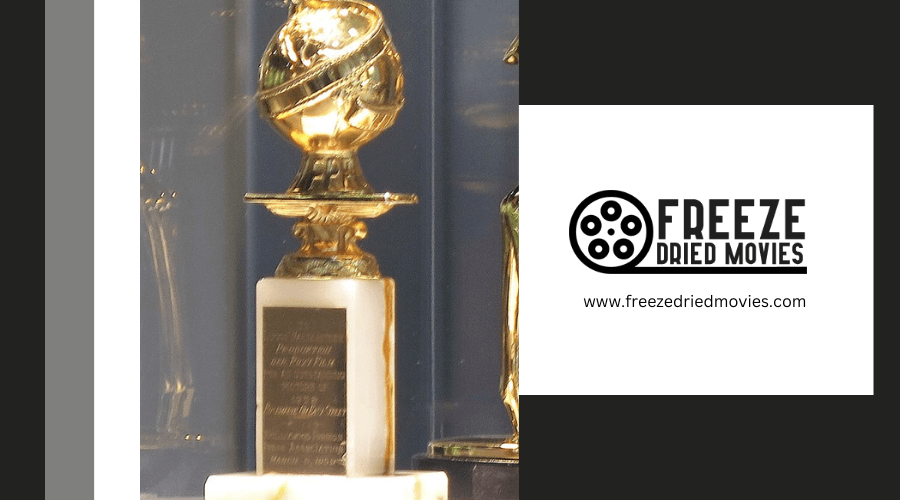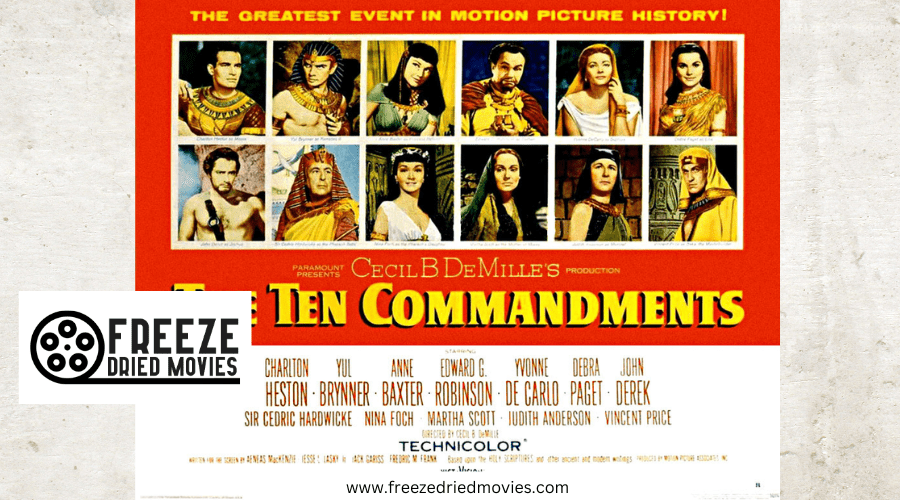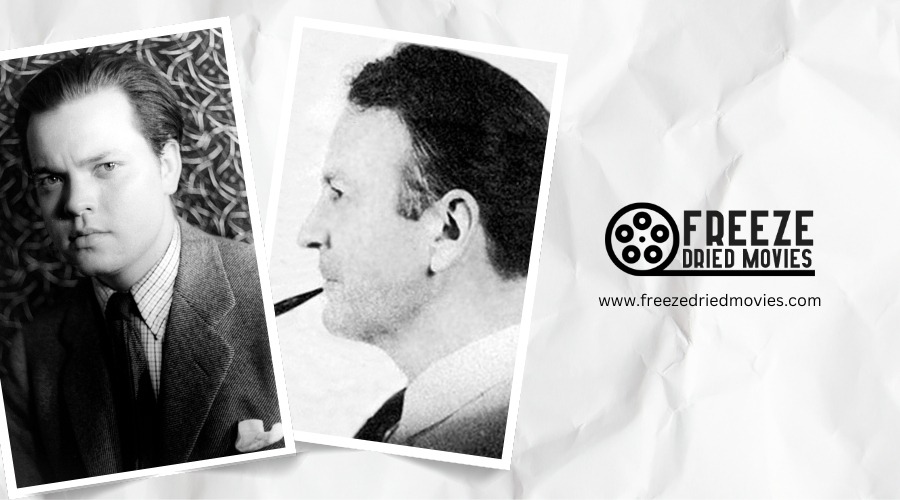The Golden Globes of the 1960s: Films and Stars That Shone Brightest

The 1960s Golden Globes marked a revolutionary era when cinema transitioned from traditional studio productions to bold, counterculture-influenced films. Stars like Elizabeth Taylor and Sidney Poitier redefined Hollywood's panorama, while epics like Ben-Hur and Doctor Zhivago swept the awards. The decade witnessed European influences, new American auteurs, and politically outspoken performers reshaping entertainment forever. The full story reveals how this critical decade changed movies as we comprehend them.
Image: Mavelus, Golden Globe, CC BY-SA 4.0
A Decade of Cultural Revolution in Cinema
As the 1960s ushered in an era of social upheaval and cultural metamorphosis, the Golden Globes captured cinema's dramatic shift from traditional studio productions to more daring, counterculture-influenced films.
The Golden Globe awards recognized both styles, documenting this unique period of cinematic evolution.
As a new generation of filmmakers emerged, they brought fresh perspectives that would forever change the movie industry. From the grandeur of Doctor Zhivago to the pioneering narratives of Tom Jones, the 1960s marked a turning point where traditional cinema and revolutionary storytelling coexisted on the same prestigious stage.
You'll find this transformation reflected in the diverse range of movies honored during this pivotal decade. While epics like Ben-Hur and Lawrence of Arabia represented the old guard, films like The Graduate and In the Heat of the Night challenged conventional storytelling and social norms.
This era of transformation followed the groundbreaking success of films like On the Waterfront, which had already begun pushing cinematic boundaries in the previous decade.

Here are the notable actors, actresses, directors and movies from the 1960s.
| Actors | Actresses | Directors | Movies |
|---|---|---|---|
| Sidney Poitier | Elizabeth Taylor | David Lean | Ben-Hur |
| Paul Newman | Sophia Loren | Tony Richardson | Doctor Zhivago |
| Robert Redford | Jacqueline Bisset | Ingmar Bergman | Tom Jones |
| Steve McQueen | Anouk Aimée | Stanley Kubrick | Lawrence of Arabia |
| Dustin Hoffman | Claudia Cardinale | John Schlesinger | The Graduate |
| Peter Fonda | Liv Ullmann | Mike Nichols | In the Heat of the Night |
| Dennis Hopper | Audrey Hepburn | Richard Brooks | Easy Rider |
| Marcello Mastroianni | Jane Fonda | William Wyler | Midnight Cowboy |
| Peter Sellers | Shirley MacLaine | Robert Wise | Becket |
| Warren Beatty | Julie Andrews | Fred Zinnemann | The Lion in Winter |
| Gregory Peck | Brigitte Bardot | Blake Edwards | West Side Story |
| Marlon Brando | Doris Day | George Stevens | Breakfast at Tiffany's |
| Anthony Quinn | Deborah Kerr | John Frankenheimer | To Kill a Mockingbird |
| Charlton Heston | Ingrid Bergman | Franklin J. Schaffner | The Sound of Music |
| Sean Connery | Anne Bancroft | Sam Peckinpah | Butch Cassidy and the Sundance Kid |
The Rise of New Hollywood Auteurs
The cinematic revolution of the 1960s brought forth a new breed of Hollywood auteurs who redefined stardom and storytelling. You'll notice how unconventional talents like Peter Fonda and Dennis Hopper altered filmmaking with Easy Rider, while Dustin Hoffman challenged traditional leading-man archetypes in Midnight Cowboy.
The era marked a departure from the Gregory Peck-style classic Hollywood star, as politically outspoken actors like Warren Beatty, Paul Newman, and Robert Redford took center stage. British directors David Lean and Tony Richardson brought fresh viewpoints to Golden Globe-nominated films, while international cinema gained prominence through visionaries like Ingmar Bergman. This global influence reshaped Hollywood's terrain, proving that audiences were ready for more complex, challenging narratives that broke from conventional storytelling molds. A similar shift would occur in the 1980s when Mad Max 2 catapulted Australian cinema into mainstream American consciousness, paving the way for more international crossover stars.
International Stars and Their Global Impact
During the 1960s, an extraordinary wave of international talent revolutionized the Golden Globes into a truly global celebration of cinema. You'd witness the rise of European icons like Sophia Loren alongside fellow luminaries Anouk Aimée and Claudia Cardinale, who brought sophistication and charm to Hollywood's spotlight.
The era's international impact can be measured in three distinct waves:
- The emergence of European actresses who redefined glamour, including Liv Ullman and Jacqueline Bisset
- The establishment of new male powerhouses, with Marcello Mastroianni and Peter Sellers winning coveted Golden Globes
- The rise of American sex symbols like Steve McQueen and Robert Redford, who altered Hollywood's leading man archetype
This global convergence of talent didn't just change the awards ceremony - it permanently reshaped cinema's cultural milieu and audience expectations worldwide.
Among these luminaries, Elizabeth Taylor's two Oscars cemented her position as one of Hollywood's most formidable international stars of the decade.
Award-Winning Epics That Defined the Era

Sweeping historical narratives dominated Golden Globe winners throughout the 1960s, with epics like Ben-Hur and Doctor Zhivago enthralling audiences through their grand scope and emotional depth. You'll find that these Motion Picture winners weren't just spectacles; they were supremely crafted stories that resonated with viewers on multiple levels.
From Ben-Hur's unparalleled 11 Academy Awards to The Lion in Winter's powerhouse performances, each film brought something unique to the era. While Becket explored the intricate relationship between church and state, Doctor Zhivago painted a romantic tale against revolutionary Russia's canvas.
Even as historical dramas ruled the decade, The Graduate broke new ground in 1967, capturing the zeitgeist of social change and proving that the Golden Globes could embrace both traditional epics and contemporary storytelling.
Breaking Barriers: Diversity and Representation
While epic historical dramas captivated audiences' imagination, social progress made its own history at the Golden Globes throughout the 1960s. Sidney Poitier's groundbreaking win shattered barriers, marking a pivotal moment for Black representation in the Actors Guild. You'll notice how the Hollywood Foreign Press acknowledged diverse talent and international filmmakers like Ingmar Bergman, expanding the Guild of America's global influence.
Key developments that shaped representation during this era:
- Poitier's historic Golden Globe triumph for Lilies of the Field set new precedents
- Bergman's multiple nominations elevated foreign film recognition
- Activism by stars like Brando, Beatty, Newman, and Redford used their platform for social change
These milestones reflected Hollywood's growing awareness of diversity and social responsibility, transforming the Golden Globes from mere awards to catalysts for change.
The Evolution of Hollywood Glamour
Hollywood glamour underwent a dramatic alteration throughout the 1960s Golden Globes, as screen icons redefined beauty standards and fashion statements. You'd see stars like Audrey Hepburn and Sophia Loren challenging traditional beauty norms at events like the Cecil B. DeMille awards, bringing fresh viewpoints to red carpet glamour.
While Marilyn Monroe's voluminous blonde bob had set the tone for the early decade, the late 1960s saw a shift toward more diverse and bold expressions of beauty, particularly evident during ceremonies like "In the Heat of the Night's" triumphant year. The era marked a departure from Grace Kelly's refined royal elegance, as celebrities submerged themselves in statement jewelry, dramatic makeup, and innovative hairstyles. This conversion laid the groundwork for future decades, where stars like Cher would continue pushing beauty boundaries with their distinctive styles.
Political Activism and Celebrity Influence
Through turbulent social changes of the 1960s, the Golden Globes emerged as a powerful platform for celebrity activism. You'll find that stars like Warren Beatty and Paul Newman reconfigured the Los Angeles awards ceremony from mere entertainment into a stage for social change.
This shift continued into the early 1970s, exemplified by Marlon Brando's bold stance for Native American rights.
- Sidney Poitier's historic 1964 win challenged racial barriers in the Guild system.
- British directors David Lean and Tony Richardson brought international viewpoints to social issues.
- While musicals offered escape, activist actors used their influence to spotlight real-world problems.
The era marked a turning point where celebrities recognized their unique position to influence public opinion. Their actions at the Golden Globes demonstrated that entertainment awards could serve as catalysts for meaningful social and political dialogue.
Television's Growing Influence on Film Culture
You'd notice how the Golden Globes welcomed this cultural shift by recognizing both mediums equally. TV stars weren't just presenting awards anymore - they were winning them.
The success of crossover talents like Doris Day and Frank Sinatra proved that the lines between film and television were becoming increasingly blurred. The ceremony became a unique platform where small-screen celebrities stood shoulder-to-shoulder with Hollywood's elite, reflecting television's growing influence on entertainment culture.




